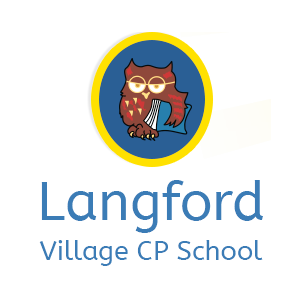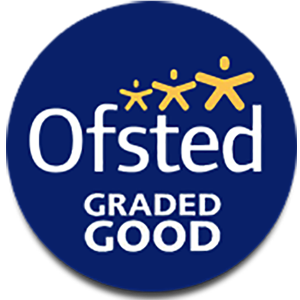




Intent
Our Maths curriculum encourages children to develop mathematical understanding in order to solve problems and justify their thinking. It will develop their power of resilience and perseverance when faced with mathematical challenges. We will encourage all children to see Maths as a subject that they enjoy and can achieve in. It will show the importance of Maths as an essential part of everyday life; this will help to ensure that the children see the relevance of what they are learning. We will incorporate sustained levels of challenge through varied and high quality activities with a focus on fluency, reasoning and problem solving. It will also encourage the children to develop their own mental strategies for solving problems and to be confident in this area.
Implementation
At Langford Village Community Primary School we place great emphasis on ensuring our children spend time developing skills by providing opportunities for children to apply their learning to problem solving activities, where they are asked to answer, prove and justify their thinking. The Structure of Maths teaching is based upon the Maths National Curriculum guidelines and covers all of the recommended objectives. Children study mathematics daily following the White Rose Maths Scheme of Learning. White Rose Maths is a blocked scheme, which allows for depth and breadth of learning within each strand of mathematics.
Concrete, Pictorial and Abstract Learning
Children engage with a wide and varied range of concrete manipulatives, pictorial representations and abstract methodologies within each session. Cohesive use of concrete, pictorial and abstract learning is a fundamental part of mastery in mathematics for all learners, not just those pupils with SEND. Concrete and pictorial references scaffold and strengthen understanding and are widely used as a teaching and learning tool from Foundation Stage to Year 6.
Fluency, Reasoning and Problem Solving
Every learning session includes the opportunity to develop fluency skills, construct chains of reasoning using relevant knowledge alongside relevant terminology and solve increasingly complex problems in a systematic and coherent way.
Mathematical Vocabulary
Sessions include explicit reference to vital mathematical vocabulary and the use of stem sentences to support and encourage all children to communicate their ideas with mathematical precision and clarity. These sentence structures often express key conceptual ideas or generalities and provide a framework to embed conceptual knowledge and build understanding.
Fluent Recall
We are committed to ensuring that pupils secure their knowledge of Times Tables and Related Divisional Facts by the end of Year 4. Our pupils engage in regular low stakes testing through Times Tables Rock Stars to practice fluent recall.
EYFS
At Langford we understand the importance of early experiences of maths and follow White Rose Maths Scheme of Learning as well as the NCETM Mastering Number project. White Rose Maths aligns with the EYFS 2021 and provides practical learning opportunities for early maths through a fun and engaging approach enabling children to build knowledge and key skills towards achieving their early learning goals. The Mastering Number project aims to secure firm foundations in the development of good number sense – understanding that this is a necessary building block for children to excel in the subject. The two key ELG’s for mathematics are:
Number
Number composition, subitising, recall of bonds to 5 and 10 and doubling.
Numerical Pattern
Verbally count beyond 20, compare quantities, explore and represent patterns.
Teachers provide creative and engaging opportunities for children to ignite their curiosity and enthusiasm for the subject, while focusing on the three prime areas of: Communication and Language, Physical Development and Personal Social and Emotional Development. Activities and experiences are frequent and varied, and allow children to build on and apply understanding of Numbers to 10. Concrete manipulatives are a key focus within sessions, as is the use of pictorial representations including Tens Frames and Part/Whole Models. Children are actively encouraged to use mathematical terminology within their understanding, with a focus on developing positive attitudes and interest in the subject.
Impact
Our children will become fluent in the fundamentals of mathematics with a conceptual understanding and the ability to recall and apply knowledge rapidly and accurately. Children will approach mathematical problems with increasing sophistication and perseverance to seek solutions. Children will be able to reason, justify and present proof using mathematical language. Our children will develop enjoyment and confidence in Maths.
The impact of Maths is measured in terms of the extent to which pupils have developed new knowledge, understanding and skills and that they can use and recall this with fluency. The children’s learning in mathematics is assessed informally within each lesson, as well as formally at the end of each term.
Impact will be measured by:
Langford Village Community Primary School
Peregrine Way
Bicester
Oxon
OX26 6SX
Tel: 01869 369021
Email: office.2608@langford-village.oxon.sch.uk
Headteacher: Mrs Sarah Tomlin
SENCo: Mrs Laura Oliver
Paper copies or all information available on this website can be obtained from the school office free of charge